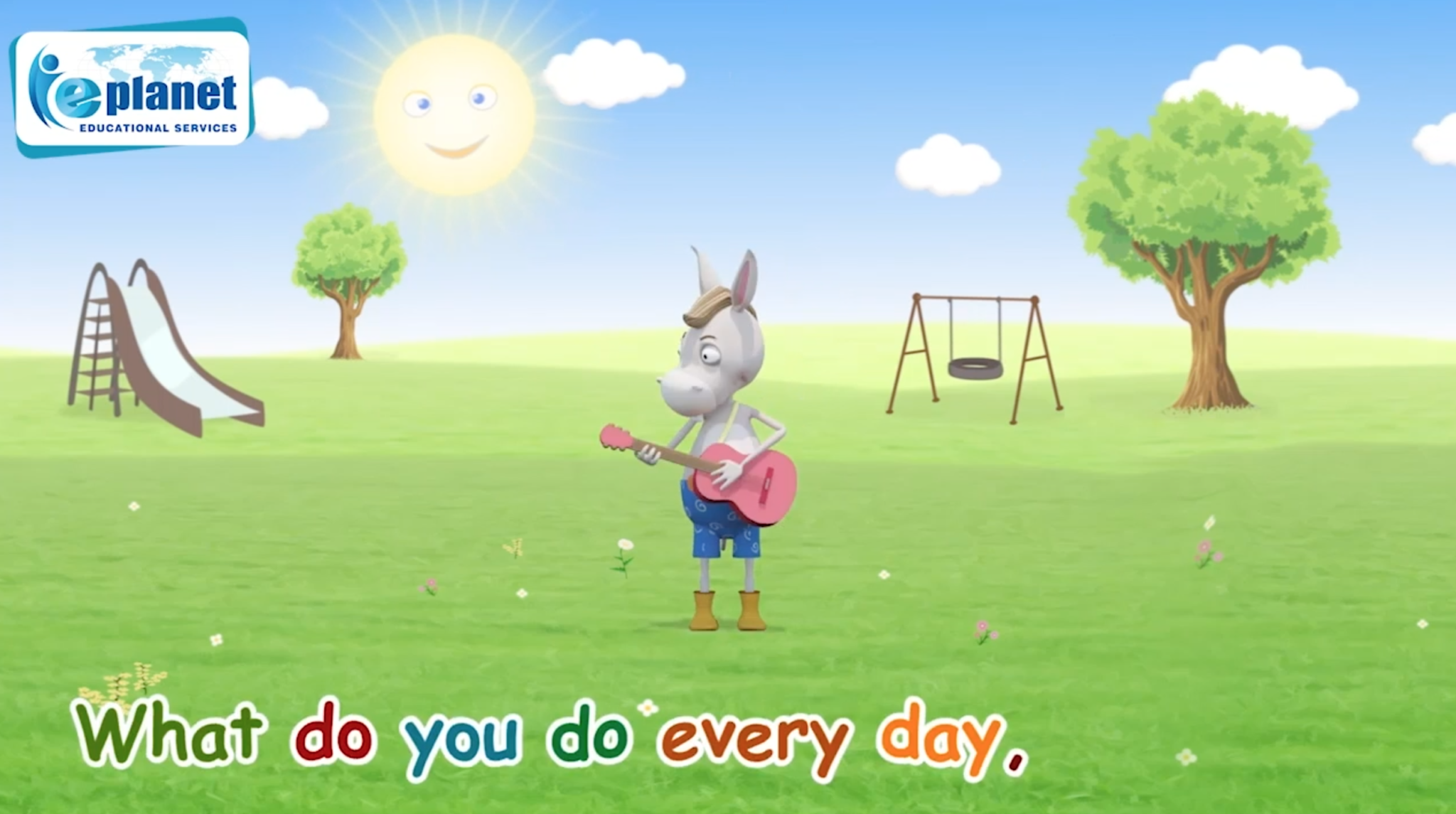
7 Top Tips for Teaching English to Beginners
Have you suddenly found yourself teaching complete beginners? You are certainly not alone! We are here to help. So, here’s everything you need to know when it comes to teaching English to newbies!✔️ Planning & PreparationLesson planning can be time-consuming, but in order to help your beginners make progress, a good lesson plan is essential. It is often said that if we fail to prepare, we prepare to fail. So, always bear in mind that careful preparation allows every EFL teacher to map out a great learning path.For example, lesson planning will help you to know what realia you should bring to your next lesson. Realia are any real objects you can use in the classroom to make the learning experience more memorable for your students. And you should use them really often because they can easily grab all beginners’ attention and they appeal to both visual and kinaesthetic learners of all ages!✔️ Show, Don’t TellGood teachers always use more than words to explain new vocabulary and ideas. Body language can reinforce what you want to say and gestures really help. Hand movements sometimes speak louder than words; it is well established in numerous behavioural studies in psychology and education that gesticulation and speech are interrelated. Actually, teaching English to beginners without gesticulation is like teaching with your hands tied behind your back!✔️ Total Physical ResponseTotal Physical Response (TPR) can also help. Created by Dr. James Asher, TPR is based on the way all children learn their mother tongue. And it has been proved that it can drastically reduce the use of learners’ native language (L1) in second or foreign language teaching!When you learn a language as a child, you don’t just listen to some words and try to repeat them. You watch your parents, you try to understand what their words mean and you respond with actions. For example, think of a mother who asks her son to get a ball. The little boy will just go and get it without saying anything. He can’t talk, but he certainly can take in the language!So, get inspired, say a phrase, demonstrate an action and then say again the phrase as a command. For example, the phrase ‘Open your books’ is a great example of easy classroom language that you can use during your first lessons.✔️ Keep It SimpleKISS (Keep It Simple, Stupid) is a design principle which states that all systems should always be as simple as possible. The term was first used in the U.S. Navy in 1960 but it can also be brought to bear in your EFL classroom!Speak slowly and clearly. If necessary, go over the same points again and again. Speaking louder than you usually do can also help sometimes. And remember not to overwhelm your students with long and complicated sentences when giving instructions.✔️ Routine & FunDeveloping a routine in your classroom makes giving instructions much faster. However, you do not want to be a boring teacher, right? That’s why it is a great idea to always remember to add a little bit of unexpected fun!For example, when teaching phonics or new vocabulary, you can use music to create a positive and uplifting atmosphere. In this way, beginners memorise sounds and new words in an enjoyable way. After all, it's a lot easier to remember a catchy song than it is to remember pronunciation rules and long strings of words. Advertisers often use jingles to make their messages stick in our heads; do the same in your EFL classroom!✔️ Visual StimuliHow would you describe an apple to someone who doesn’t speak your mother tongue? The simplest thing to do would be to show them a picture of an apple, right?Pictures, flashcards, infographics and illustrations can help. Most beginners study better with visual aids. Using educational videos or 3D animated cartoons and educational board games for children or adventurous games for teenagers and adults can also help foster a positive learning attitude. And printing some useful posters to put up on the classroom walls is always a great idea!✔️ Practice Makes PerfectLearning a foreign language is like going to the gym. Our body and muscles are strengthened only if we practise on a regular basis. So, explain to your students that they will make mistakes, but that’s OK. Help them to embrace their mistakes andlearn from them. Use positive reinforcement strategies, help your students celebrate their small achievements and reward good work and effort.To find more useful tips for teaching English, learn more about how you can teach EFL newcomers and for inspirational guidance and free resources, check out our Resources for English Teachers.Ready to start teaching English to newbies? Good luck to all you great teachers out there! @font-face {font-family:"Cambria Math"; panose-1:2 4 5 3 5 4 6 3 2 4; mso-font-charset:0; mso-generic-font-family:roman; mso-font-pitch:variable; mso-font-signature:-536870145 1107305727 0 0 415 0;}@font-face {font-family:Calibri; panose-1:2 15 5 2 2 2 4 3 2 4; mso-font-charset:0; mso-generic-font-family:swiss; mso-font-pitch:variable; mso-font-signature:-536859905 -1073697537 9 0 511 0;}@font-face {font-family:"Segoe UI Emoji"; panose-1:2 11 5 2 4 2 4 2 2 3; mso-font-charset:0; mso-generic-font-family:swiss; mso-font-pitch:variable; mso-font-signature:3 33554432 0 0 1 0;}p.MsoNormal, li.MsoNormal, div.MsoNormal {mso-style-unhide:no; mso-style-qformat:yes; mso-style-parent:""; margin-top:0cm; margin-right:0cm; margin-bottom:8.0pt; margin-left:0cm; line-height:107%; mso-pagination:widow-orphan; font-size:11.0pt; font-family:"Calibri",sans-serif; mso-ascii-font-family:Calibri; mso-ascii-theme-font:minor-latin; mso-fareast-font-family:Calibri; mso-fareast-theme-font:minor-latin; mso-hansi-font-family:Calibri; mso-hansi-theme-font:minor-latin; mso-bidi-font-family:Arial; mso-bidi-theme-font:minor-bidi; mso-ansi-language:EN-GB;}a:link, span.MsoHyperlink {mso-style-priority:99; color:#0563C1; mso-themecolor:hyperlink; text-decoration:underline; text-underline:single;}a:visited, span.MsoHyperlinkFollowed {mso-style-noshow:yes; mso-style-priority:99; color:#954F72; mso-themecolor:followedhyperlink; text-decoration:underline; text-underline:single;}.MsoChpDefault {mso-style-type:export-only; mso-default-props:yes; font-size:11.0pt; mso-ansi-font-size:11.0pt; mso-bidi-font-size:11.0pt; font-family:"Calibri",sans-serif; mso-ascii-font-family:Calibri; mso-ascii-theme-font:minor-latin; mso-fareast-font-family:Calibri; mso-fareast-theme-font:minor-latin; mso-hansi-font-family:Calibri; mso-hansi-theme-font:minor-latin; mso-bidi-font-family:Arial; mso-bidi-theme-font:minor-bidi; mso-ansi-language:EN-GB;}.MsoPapDefault {mso-style-type:export-only; margin-bottom:8.0pt; line-height:107%;}div.WordSection1 {page:WordSection1;}...

Children’s Stories
Are you wondering how English learning can be made easier and a lot more fun? We’ve got you covered! Just join Ozzy and his friends on amazing adventures that introduce young students to everyday words and phrases with the help of exciting stories that bring English to life.Ozzy the donkey, Pella the kangaroo, Sam the hippo and the rest of the characters are ready to shake things up! The stories for children 4-7 years old are here to provide powerful language-learning opportunities and entertain young learners in a unique way. Ozzy and the Magic Drink and Ozzy and the Future (for children 4+ years old), Ozzy and Street Safety (for children 5+ years old) and Ozzy and His Tablet (for children 6+ years old) will make you wish you had learnt English that way too!All the stories are based on the lovely E-planet cartoon characters, which are very popular with young learners, while the carefully chosen, multicultural content makes them suitable for every country and area around the world. Well, all cultures worldwide have always used the power of storytelling to pass knowledge on from one generation to another. But not all stories are right for second language learning. That’s why it is important to use resources that have been carefully written with specific considerations in mind. The vivid colours, the fun illustrations, the appropriate length and the unique layout of these books can easily motivate our little students to continue reading and have fun as they easily identify with the main characters!It’s undeniable that all children like reading and listening to stories over and over again. This repetition helps them not only become familiar with key vocabulary and structures but also enrich their thinking and memory skills. Over time, they will understand more of the meaning and remember more of the language. And it is important that the E-planet stories offer strong, positive messages in an entertaining way – they help all students understand what can happen when they believe in themselves, spread positivity and pursue their dreams!Extra tip for teachers: Ask children to use their imagination, draw their own pictures and label them, or even describe their favourite character or part of the story. And don’t forget to use the full-coloured flashcards and the audio recordings (or the high-quality 3D animated video for Ozzy and the Magic Drink) – these are wonderful aids that facilitate the learning of new vocabulary and make reading easier!...

Pre-junior & Junior 3D Cartoon Films
Are you wondering how you can lead your young students to develop a love for English and improve their skills in an entertaining and playful way? We’ve got you covered! Bright and vivid colours, tons of action and fun, upbeat music and songs, amusing animated illustrations… It sounds like you’ve found some great English cartoon films! Yes, the most popular E-planet characters are back! It’s time to let Ozzy and his friends help all young students refresh their vocabulary and grammar with exciting games, adventures, stories and songs! Made for the Pre-junior and Junior levels, which are aimed at children from 4 to 5 years of age, our new 3D cartoon films Let’s Have Fun with Ozzy and Let’s Play with Ozzy can also help children improve their listening and speaking skills in an easy, age-appropriate and entertaining way. They encourage all students to imitate the animated heroes, learn simple phrases and get used to pronunciation patterns while also having fun. Well, it’s undeniable that all children learn more effectively when they focus on new stimuli and activities that can easily grab their attention. After all, nothing kills the desire to learn more than boredom! That’s why fresh and innovative methods of teaching and learning can make students much more attentive. Since motivation is one of the most important factors in foreign-language acquisition, we use the power of cartoons to make learning really fun! Once children have become emotionally attached to the characters, they are then open to all the learning processes which may be introduced. Did we mention that E-planet is the only English teaching company who has converted whole books into 3D cartoon films, which young students will enjoy watching over and over? Ozzy the donkey, Pella the kangaroo, Sam the hippo and the rest of the characters are ready to shake things up! Exceptional character design, interesting dialogue scripting and great voice acting provide the most potent hooks to capture the attention of all children. On April 1st, the new E-planet cartoon films, Let’s Have Fun with Ozzy and Let’s Play with Ozzy, will be offered exclusively to our young students around the world—a unique gift from E-planet! We promise: these films will make you wish you had learnt English that way too! Stay tuned! * Extra tip for parents: Think outside the box and transform learning time into play! Invite your child’s friends for an ‘English day’ at home, suggesting that they watch the new films and speak in English as much as they can. You can make this experience truly unforgettable by also asking them to play an exciting educational board game! * Extra tip for teachers: Bear in mind that the use of cartoon films can be especially beneficial for children with learning difficulties. The keywords here are fun and multisensory learning. The more innovative and entertaining the material you use is, the more enthusiastic your students will be! https://www.youtube.com/watch?v=u4RPeSgK-dg...

COVID-19 & Learning English: 7 fun things to do while stuck indoors
The coronavirus pandemic is unfortunately keeping, many English learners around the world at home. So let’s try to turn this into a positive for us all! We’d like to share some ideas with you on how you can keep making progress and improve your skills by immersing yourself in the English language and culture. Embrace Netflix Who says that watching countless TV shows and films has to be unproductive? Read our blog post How to use Netflix to learn English, grab some popcorn and prepare to sharpen your language skills! Read & Watch Now is the time you can finally indulge in all those things you never had time for… Things like The Hunger Games, Harry Potter, Dracula, The Lord of the Rings, The Great Gatsby, Alice in Wonderland… There are so many films based on books, and they can bring whole worlds to life before your eyes. Just make sure you read the books before you watch the films! Now that you have lots of free time, you can also create the perfect and budget-friendly reading nook in your bedroom or somewhere else at home. You just need some soft cushions or comfy chairs, some book shelves and some good English books. That’s it –you now have your own little hideaway! Visit a Gallery Thanks to technology, quarantine measures don’t mean that you can’t explore some great galleries all over the world! For example, during its temporary closure, the National Gallery of Art (U.S.A.) offers you the opportunity to enjoy video tours of current exhibitions and online learning opportunities. The collection of the National Gallery in London is also open online for everyone. Just Cook Yes, try that traditional British recipe… fish and chips anyone? Or how about a simple cottage pie, or something a bit more challenging like scones? You’ll certainly feel creative and have fun – and at the same time you will be stocking up your freezer with home-cooked meals or healthy snacks! And when it comes to the most important meal of the day, why not cook a proper full English breakfast? Listen& Sing Use YouTube to develop your listening skills and think of smart ways to make the process fun. For example, you can listen to your favourite English-language songs. Sing along, improve your pronunciation, learn new words and… perhaps you’ll even start a new singing career! Explore the Universe Whether you admire astronauts or not, want to kill some time or just love learning about astronomy and our world, you can always practise your English skills at home with NASA!Whatever you do, remain optimistic, think positive, stay at home and remind yourself that every dark cloud has a silver lining! Play Board Games And when you get tired of electronic technology, turn off the TV and shut down your computer… While technology has advanced in recent years, there's nothing better than a good old-fashioned board game. There are lots of board games which are both entertaining and helpful in practising a foreign language – even if they generate a few arguments over who has won!...

British and American English: We speak the same language, right?
When you’re learning English in a classroom, it’s easy to forget that there’s not just one universal English language. Just cross the Atlantic and you’ll probably get confused! Firstly, there are some words that are exclusively British or American, even though people from both countries understand them. Some words even have different meanings! Londoners live in flats; New Yorkers live in apartments. A sidewalk in the U.S.A. is a pavement in the U.K. Ask for chips in New York, and you’ll soon find a plate of what people call ‘crisps’ in England. British people join a queue to wait for something, but Americans wait in line. If you need to fill up your car with fuel, you can ask for petrol in Britain, but you need to buy gas in the U.S.A. British people have biscuits with their cup of tea or coffee, but Americans eat cookies. Brits go on holidays, whereas Americans go on vacation. And when Brits talk about their trainers, they are talking about their sneakers, but American trainers are the people who make them sweat at the gym! There are also hundreds of minor spelling differences between British and American English. You can thank American lexicographer Noah Webster for this! Webster started his effort to reform English spelling in the late 1700s. He was frustrated by the many inconsistencies in English spelling, and wanted to spell words the way they sounded. That’s why Americans have colors (not colours), flavors (not flavours), centers (not centres) and theaters (not theatres). They also organize their things, while British people organise them. Webster also popularised the dropping of double letters in past-tense verbs like ‘traveled’ (which is commonly spelt ‘travelled’ in the UK). However, not all of Webster's proposals were hits; despite his best efforts, Americans resisted turning ‘soup’ into ‘soop’! It gets even more confusing when you realise that in each country, there are many different accents and ways to pronounce lots of words! Add Australian English to the mix and you’ll be totally confused. For example, in the United Kingdom, a lolly is a lollipop, but in Australia and New Zealand it’s a small piece of confectionery, a sweet (yes, what is called ‘candy’ in the U.S.A.)! There are some grammar differences too. In British English, people often use ‘shall’ to offer to do something. But it is very unusual for speakers of American English to use ‘shall’. They say something like ‘should’ or ‘would you like’ instead. So yes, we know English can be a beautiful and enjoyable language, but it can also be difficult, baffling and frustrating… But that’s what makes learning English such an interesting and rewarding experience; there’s always something new and exciting to find out! If you don’t understand some of the differences, don’t worry. Sometimes these differences are even confusing to native speakers too! But we can reassure you that both British and American English languages are equally acceptable in most exams. Yes, most examiners recognise (recognize in American English!) that there are many varieties of English, and that what is most important above all is that an exam candidate can show his/her ability to communicate in this language. So, you just have to study effectively. Don’t forget that whatever your level of English is, E-planet is here to help! If you liked this post, something tells us that you’ll love these posts too: WHAT TO AVOID WHEN LEARNING ENGLISH and THE 5 MOST CONFUSED WORDS IN THE ENGLISH LANGUAGE....

Acing a Job Interview in English
Your heart is racing and your palms feel sweaty. If this is you as you anxiously wait to walk into a job interview in English, then we have some tips for you. English is the global language for business, so let’s get down to the nuts and bolts of acing a foreign language interview! Practise Common Interview Questions Pre-interview preparation is extremely important. Prepare your answers to possible questions, both general interview ones as well as ones specifically related to the position you’re applying for. There are plenty of online sources you can consult. Find the most relevant questions and practise answering them before the interview. Of course it’s not possible to predict exactly what a recruitment manager will ask you. The best thing you can do is to be ready to answer the most common questions without any long, unnecessary pauses or hesitation. Doing this will help you feel more confident when you have to answer the unexpected questions that usually come up during an interview. Exchange Greetings & Pleasantries Remember, first impressions matter! Saying ‘good morning, how are you?’ when you enter the interview room or ‘I am pleased to meet you’ after meeting the interviewer is important. If an interviewer sneezes, it’s courteous to say ‘bless you’. If he or she says ‘have a wonderful day’, you should respond with a polite ‘thank you, you too’. Learn the Necessary Vocabulary Prepare at least 10 sophisticated phrases or idioms and repeat them to yourself over and over again until they come naturally to you. Use them strategically when answering the interview questions. Not only will you make more of an impression, but the interviewer will also appreciate your language proficiency. Some companies also have phrases or expressions they use on a regular basis; it’s a great idea to research these and use them during the interview. You can usually find this information by looking at the company’s website and social media. Needless to say, you must understand the job titles commonly used by companies, as well as the responsibilities they involve. What do acronyms such as CEO, COO, HR, and BOD stand for? Do your homework! Our workshop Jobs and Titles will be very helpful to you in this regard. Describe Your Past and Future Why did you leave your last job? Where do you see yourself five years from now? Your interviewer will want to know what you’ve done in the past and what you would like to do in the future. Therefore, it’s time to brush up on your grammar. Review past and future tenses and make sure you use them correctly. Saying ‘I not going to’ instead of ‘I’m not going to’ could cost you your dream job! Focus on Professional Development Explain to the interviewer what you’re doing to improve your business English and increase your soft skills. This is your opportunity to show that you’re focused on professional development, a valuable asset for any employee. Willingness to learn new things is a must in the business world. Listen Before Answering Listen to the interviewer carefully before giving an answer. Listening skills are important in any business situation. Don’t be afraid to ask for clarification if you don’t understand a question. Politely ask the interviewer to repeat or explain it. However, you can still give a good response even if you don’t fully understand the question. To do this, focus on the parts you do understand as opposed to the parts you don’t. Fluency vs Speed Most people tend to speak quickly when they are nervous. Force yourself to slow down, even if you feel confident in your ability to speak quickly. Your future employer would prefer to hear you speak slowly and clearly. It’s a good way to avoid misunderstandings while also showing you’re a mindful communicator. Be Honest Language learners tend to either overestimate or underestimate their language skills. Do not lie about your language proficiency when asked about it. You can even consider sharing your language-learning process as an example of the skills and personal qualities you would bring to the organisation. Pay Attention to Non-Verbal Communication Non-verbal communication is tricky, but it’s also very important in business interviews. Be aware of your body language and the messages it conveys to the interviewer. Also, be mindful of cultural differences. For example, in American companies, it’s expected that you maintain eye contact with your interviewer. A warm smile and a firm handshake are appreciated too. However, other cultures have very different perceptions about what is considered polite behaviour. If needed, do some research and adjust your body language accordingly. Immerse Yourself in English Start preparing for that interview today! To improve your listening and speaking skills, listen to English songs daily, watch films without subtitles and, if possible, talk to native English speakers. A final note: confidence matters! Approaching your interview in a confident way will significantly increase your chances of success. Now … go and impress your future boss. Good luck! What other advice would you give to someone who wants to prepare for a job interview in English? Tell us in the comments below. Want to boost your business English and soft skills? Our business books are here to help you! And if you enjoyed this post, don’t keep it to yourself. Spread the word! Give this article a quick share on your favourite social media....

5+1 Surprising Reasons Why You Should Learn a New Language
Protect Your Brain Against Aging Knowing a second language can postpone the onset of dementia and Alzheimer’s disease. As scientists unlock more of the secrets of the brain, they’re learning that speaking more than one language may have benefits that extend from childhood into old age. The more languages you know, the less likely you are to experience memory loss or decline of your other mental skills! Learn How to Think Outside the Box We often fail to realise how much the language we use influences our view of the world. Learning a foreign language helps you see things from a different perspective. This is important as the ability to consider multiple viewpoints to a problem is the cornerstone of thinking in a fresh and efficient way. It turns out this is the definition of ‘lateral thinking’ – the ability to use creativity to solve problems in a ‘not obvious’ way, outside traditional patterns. Enhance Your Decision-Making Skills According to numerous studies, multilingual people tend to make more rational decisions when they do not think in their mother tongue. Using a foreign language can lead you to respond to a difficult situation in a manner that is more practical and less emotional. Well, we perceive and navigate the world through our senses, but we make sense of it through our intellect, which is fundamentally influenced by language. Improve Your Mother Tongue Learning a foreign language helps you understand your own language and culture better through comparison. It is like only having seen the colour blue your whole life, and then discovering red, purple, orange, green and yellow. Now you can see the whole spectrum of colours and understand how they relate to each other. Climb the Career Ladder The international market presents communication challenges that may not have been an issue when organisations traded solely within their homeland. Whether your goal is to remain in your current position or to switch jobs, learning a new language can set you apart from a sea of qualified job applicants. For example, can you imagine a manager who does not know business English? Become More Open-Minded As Mark Twain once wrote, ‘Travel is fatal to prejudice, bigotry and narrow-mindedness, and many of our people need it sorely on these accounts’. Likewise, learning a new language and immersing yourself in another culture is a process that really broadens your mind. So … what are you waiting for? Now is the time to develop your skills in the language you’ve always wanted to learn. Whatever your level of English, E-planet is here to help!...

Starting English Courses in September? Here Are 3 Useful Tips!
If you’re considering going back to school in September to work on your English, you may have some important choices to make. Your schedule is probably going to be busy, especially if you have a full-time job and/or family commitments. Still, improving your language skills is a significant investment that will pay off in the long run. It’s well worth your time and energy as it will open new pathways both in your career and in your personal life. To make the most of your English studies, follow the tips below. Discover the English Course That’s Best for You Before enrolling on a course, take some time to find out the different options available to you. At first glance, a general English course may seem like the obvious choice. However, before you make this decision, think about any particular needs and interests you may have. For example, if you feel it’s important to mostly improve your listening and speaking skills, a conversation course could be the perfect choice for you. Or you may need to develop your business skills, in which case you could choose to attend a few business workshops. These will help you learn more specialised terms while also providing some basic training that will be helpful in your career. If that sounds like a good idea, check out the series of 6-hour workshops E-planet has created for this purpose. They cover a wide range of topics, from business phone calls and time management to sales and marketing. There are also computer software courses for those who want to advance their digital skills while brushing up on their English and learning the correct terminology. Consider Which Form of Learning Suits Your Needs Some students thrive in a class environment while others prefer to learn from the privacy of their homes. A combination of both is frequently the best choice and that’s why blended learning is becoming more and more popular. Explore the different options before making a decision. Ask around to find out which language centres offer an extensive e-learning program that will help you expand on the knowledge you have already acquired. Are you a mobile phone enthusiast? If so, take advantage of an English learning app to enrich your vocabulary, grammar and pronunciation on the go. And if you happen to be a fan of YouTube, you’ll be able to find very helpful videos on grammar and other ESL topics. Make Learning Fun! Do you remember a time when play was the most exciting thing in your life? Children are great at using fun activities as a way to discover new things and develop their skills. No matter what our age, we all have an inner child inside us who is playful and creative and sees learning as an exciting adventure. Don’t be afraid to nourish your inner child by incorporating elements that make the study of English entertaining. There is a wide range of options, such as board games, quizzes, crosswords, songs and cartoons. Through the Internet, you can discover plenty of resources. Don’t forget the magic of storytelling too; whether you like science fiction, thrillers, romance or anything else, search for your favourite genre in simplified form that’s easy to read. Remember to follow these tips when choosing your courses for September. Everyone is different, so consider your own wants and needs. Choose the topics and forms of learning that are going to be more motivating and helpful to you. Add a touch of playfulness and creativity to your study. That way you’ll be able to make the new academic year both successful and fun!...

English Reflexive Pronouns: The Ultimate Self-Study Guide
Do you like to teach yourself English? Or do you like to learn in a classroom with the help of a teacher? Do you enjoy spending time by yourself? Wait! Why are we asking you all these questions? We've asked these questions to highlight the word yourself, this is an example of a reflexive pronoun. Although they might seem tricky at first, if you understand the idea behind them you'll sound a lot more like a native speaker. The reflexive pronouns are: When To Use a Reflexive Pronoun We use a reflexive pronoun: as a direct object when the object and the subject of the verb are the same I am teaching myself how to cook You should be careful running at night. You might hurt yourself. They are used to make it clear who or what is being referred to. Compare these two sentences: Shaun blamed himself for being late. Here the subject (Shaun) and the object (himself) are the same. Shaun blamed him for being late. Here the subject (Shaun) and the object (him) are different. Shaun is blaming another man for being late. We couldn't say Shaun blamed Shaun for being late either, as this sounds odd and could be referring to two different people called Shaun. We need reflexive pronouns to make it completey clear what is happening in the sentence. We can use a reflexive pronoun as a direct object with most transitive verbs. The most commonly used verbs with reflexive pronouns are: amuse blame cut dry enjoy help hurt introduce kill prepare satisfy teach Some verbs change their meaning slightly when used with a reflexive pronoun. Some examples of this are: amuse, apply, busy, content, behave, blame, distance, express, find, help, see Would you like to help yourself to another drink? Would you like to take another drink? I wish the children would behave themselves. I wish the children would behave well/be good. He found himself at the wrong exit. He was surprised when he realised that he was at the wrong exit. I saw myself as a doctor. I imagined that I was a doctor. She applied herself to the job. She worked very hard to the job. He busied himself in the office. He worked busily in the office. She had to content herself with a couple of sweets She had to be satisfied with a couple of sweets. Reflexive Pronouns for Emphasis We can also use reflexive pronouns for emphasis: The manager of the hotel wrote to us himself to apologise for the poor service we received. We don't use reflexive pronouns on their own as a subject in the clause, but they can be used with a noun or pronoun to emphasise the subject: Many people have too many cups and glasses. I myself have 34. By + Reflexive Pronouns Reflexive pronouns are often used with by to mean on your own, without any help or alone. Can you come with me to the supermarket? Why can't you go by yourself? We redecorated the entire house by ourselves. Reflexive Pronouns for Politeness Reflexive pronouns can also sometimes be used for politeness instead of a personal pronoun, but not as a subject of the clause: It's people like yourself that we wish to inspire. For more information about Reflexive Pronouns in English and other languages, Wikipedia has this very in-depth article. Did you find this article helpful? Let us know in the comments below and don't forget to share it, if you think someone else might find it useful!...



